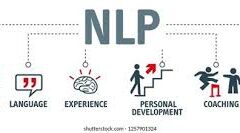Changing customer expectations are reshaping the automotive industry, compelling dealerships to reevaluate their approach to business. With only 1% of buyers fully satisfied with their vehicle purchase experience, dealerships face a significant barrier to fostering loyalty. This dissatisfaction jeopardizes long-term profitability, as customers may turn elsewhere for future service or vehicle needs. Delivering exceptional customer experiences has become more critical than ever. However, rising operational costs present the challenge of achieving more with fewer resources — and doing so quickly.
To drive sustainable growth, dealerships must prioritize relationship-building alongside achieving sales goals. Central to this effort is creating personalized digital touchpoints, especially for millennial and Gen Z shoppers, who now dominate the market. These younger consumers seek seamless, consistent experiences — from online browsing to in-person showroom visits. Turning them into lifelong customers requires a unified view of customer data, encompassing their digital shopping habits, service requests, and communications across all platforms.
Fortunately, new tools can help dealerships meet these changing demands while reducing costs and improving productivity. To succeed, however, dealerships must adopt a mindset shift, moving beyond transactional practices to focus on customer-centric strategies.
Digital Storefronts Are Falling Short
Research reveals that fewer than 20% of original equipment manufacturers (OEMs) and retailers consider their digital storefronts engaging and mobile-friendly. For more insights into the industry’s challenges and opportunities, check out the “Trends in Automotive” report, based on feedback from 500 industry leaders.
Beyond 30-Day Sales Goals: Building Lasting Relationships
Dealerships have long operated in 30-day cycles, dictated by monthly sales goals from OEMs. However, successful dealerships now balance these targets with efforts to nurture long-term relationships. This involves more than sporadic emails about promotions or tune-ups. Instead, it’s about providing consistent, valuable interactions that address customer needs year-round.
For example, keeping customers informed with personalized communications—such as alerts about service offers or recommendations for vehicle upgrades—can enhance their overall experience and build trust.
Four Steps to Build Customer Loyalty
- Unify Data for Deeper Customer Insights
Combining data across sales, finance, and service departments enables dealerships to gain a comprehensive understanding of customer behavior. Insights into purchase history, service habits, and equity in existing vehicles can guide more informed, personalized interactions. For instance, service teams equipped with sales data can help customers evaluate whether repairs or trade-ins offer the best value. - Enhance Transparency and Accessibility
Transparency is critical to building trust. Yet only 24% of automotive companies say their website prices match what customers ultimately pay. Posting clear, competitive service pricing—such as oil changes—can reassure customers and encourage them to choose dealership services over independent shops. Additionally, improving online access to account details, such as charges or payment balances, can reduce friction and foster confidence. - Leverage Personalization and Automation
Unified data enables automation that frees employees from routine tasks, allowing them to focus on higher-value interactions. Artificial intelligence (AI) can also surface actionable insights, helping sales and service teams offer relevant recommendations. For example, AI can notify customers when vehicles they’re interested in become available or suggest service upgrades before their next visit.Automation also enhances marketing efficiency. Personalized, proactive communications—such as reminders about upcoming service needs or offers—build trust by setting expectations and avoiding high-pressure sales tactics. - Educate Customers to Maximize Vehicle Features
Modern vehicles come equipped with advanced features, from radar-based cruise control to app-enabled service alerts. However, many drivers don’t fully understand these technologies. Providing ongoing educational content can help customers use these features effectively, reducing unnecessary service visits and increasing satisfaction. For prospective EV buyers, dealerships can also offer resources to demystify electric vehicle ownership and maintenance.
The Path to Loyalty: A 360-Degree Customer View
Sustaining long-term profitability hinges on extending customer loyalty beyond individual car sales. With Americans now keeping vehicles for an average of 12 years, dealerships must create enduring relationships across the vehicle’s lifecycle.
Salesforce Automotive Cloud empowers dealerships with a 360-degree view of customer data, enabling teams to deliver personalized, seamless experiences. This unified approach helps sales teams close deals faster and service teams provide tailored consultations, ultimately fostering loyalty.
Salesforce Sales and Service Cloud provide the same 360-degree view with powerful sales and service tools, including automated agents.
The goal? To ensure customers think of your dealership first—whether for service, upgrades, or their next vehicle purchase. By placing the customer at the center of your business and leveraging advanced technology, dealerships can adapt to the evolving landscape and thrive in the future.
🔔🔔 Follow us on LinkedIn 🔔🔔










